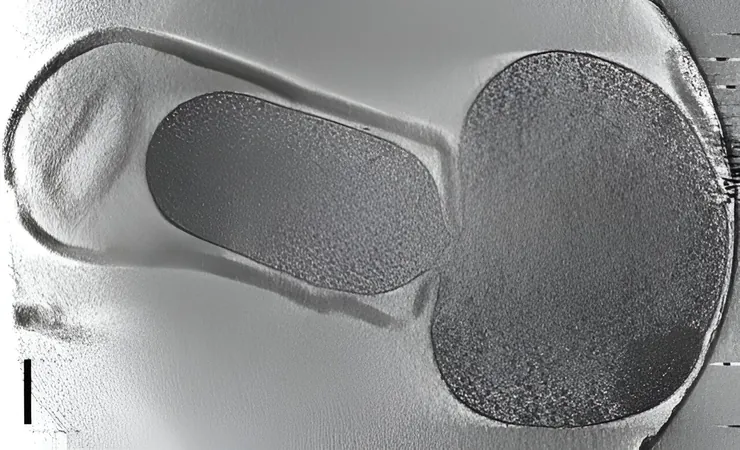
Groundbreaking Research Uncovers Early Indicators of Rheumatoid Arthritis: A Game Changer for Early Detection?
2024-10-02
Recent Findings
Recent findings have revealed significant changes in the synovial tissue microenvironment that occur before the onset of rheumatoid arthritis (RA), offering hope for early diagnosis and intervention strategies. This revolutionary research could transform the way we approach RA, a chronic inflammatory disorder that affects millions worldwide.
Key Advancements
Dr. Ursula Fearon, a prominent researcher from Trinity College Dublin (TCD), remarked, "This discovery marks a critical advancement in our understanding of the early stages of RA, which significantly affects how the disease progresses and recurs in patients. We've pinpointed a key macrophage subtype and gene signature driving the early pro-inflammatory responses in the disease. Targeting the reprogramming of these macrophages towards resolving inflammation may present a novel therapeutic opportunity."
In-Depth Study
Lead investigator Dr. Megan Hanlon, along with her team, conducted an in-depth study examining the myeloid cellular landscape in synovial tissue samples from RA patients, individuals at risk for RA, and healthy controls. Utilizing advanced flow cytometric analysis, they identified a specific population of macrophages – characterized by CD40 expression and CD206+CD163+ markers – that was prevalent in inflamed RA synovium, correlating strongly with disease activity and treatment outcomes.
Potential Early Biomarker
Dr. Hanlon added, "The presence of these macrophage populations in those at risk suggests a promising early cellular biomarker for the development of RA, enabling timely therapeutic intervention."
Unique Gene Signatures
Through comprehensive RNA sequencing and metabolic analysis, the researchers uncovered that these dominant macrophages possessed unique inflammatory and tissue-resident gene signatures, exhibiting a stable bioenergetic profile that regulates responses from stromal cells. The investigation also revealed nine transcriptionally distinct macrophage clusters identified during single-cell RNA sequencing of nearly 68,000 synovial tissue cells from RA patients and healthy controls.
Major Findings
Among the key findings, the IL-1B+CCL20+ and SPP1+MT2A+ macrophage clusters were identified as major players within the RA synovium, characterized by elevated CD40 gene expression and an ability to modulate stromal cell responses. These clusters not only contributed to pro-inflammatory states but also stimulated cytokine release and fibroblast activity.
Implications for Treatment
Interestingly, the study noted that these pro-inflammatory clusters overpowered protective CX3CR1+ barrier macrophages. This substantial evidence suggests that CD-40 signaling could be a viable target for RA patients unresponsive to current treatments. Alarmingly, these inflammatory clusters were enriched even before clinical symptoms emerged, with their prevalence at baseline serving as a predictor for treatment response and potential disease flare-ups.
Concluding Insights
In our quest for solutions to RA, Dr. Hanlon and her colleagues concluded, "We have delineated a comprehensive phenotypic and transcriptional profile of the myeloid populations in synovial tissue from healthy states to disease. The activation of a CD40-high myeloid signature preceding clinical manifestations correlates with disease activity and response to treatment."
Future Directions
The researchers also noted, "Understanding the early molecular changes that transition this immunoregulatory macrophage population into a dysfunctional inflammatory state opens doors to restoring joint homeostasis in RA patients." With these promising insights, the medical community is optimistic that this research could pave the way for innovative therapies aimed at managing and potentially preventing rheumatoid arthritis, helping countless individuals live healthier lives.



 Brasil (PT)
Brasil (PT)
 Canada (EN)
Canada (EN)
 Chile (ES)
Chile (ES)
 España (ES)
España (ES)
 France (FR)
France (FR)
 Hong Kong (EN)
Hong Kong (EN)
 Italia (IT)
Italia (IT)
 日本 (JA)
日本 (JA)
 Magyarország (HU)
Magyarország (HU)
 Norge (NO)
Norge (NO)
 Polska (PL)
Polska (PL)
 Schweiz (DE)
Schweiz (DE)
 Singapore (EN)
Singapore (EN)
 Sverige (SV)
Sverige (SV)
 Suomi (FI)
Suomi (FI)
 Türkiye (TR)
Türkiye (TR)